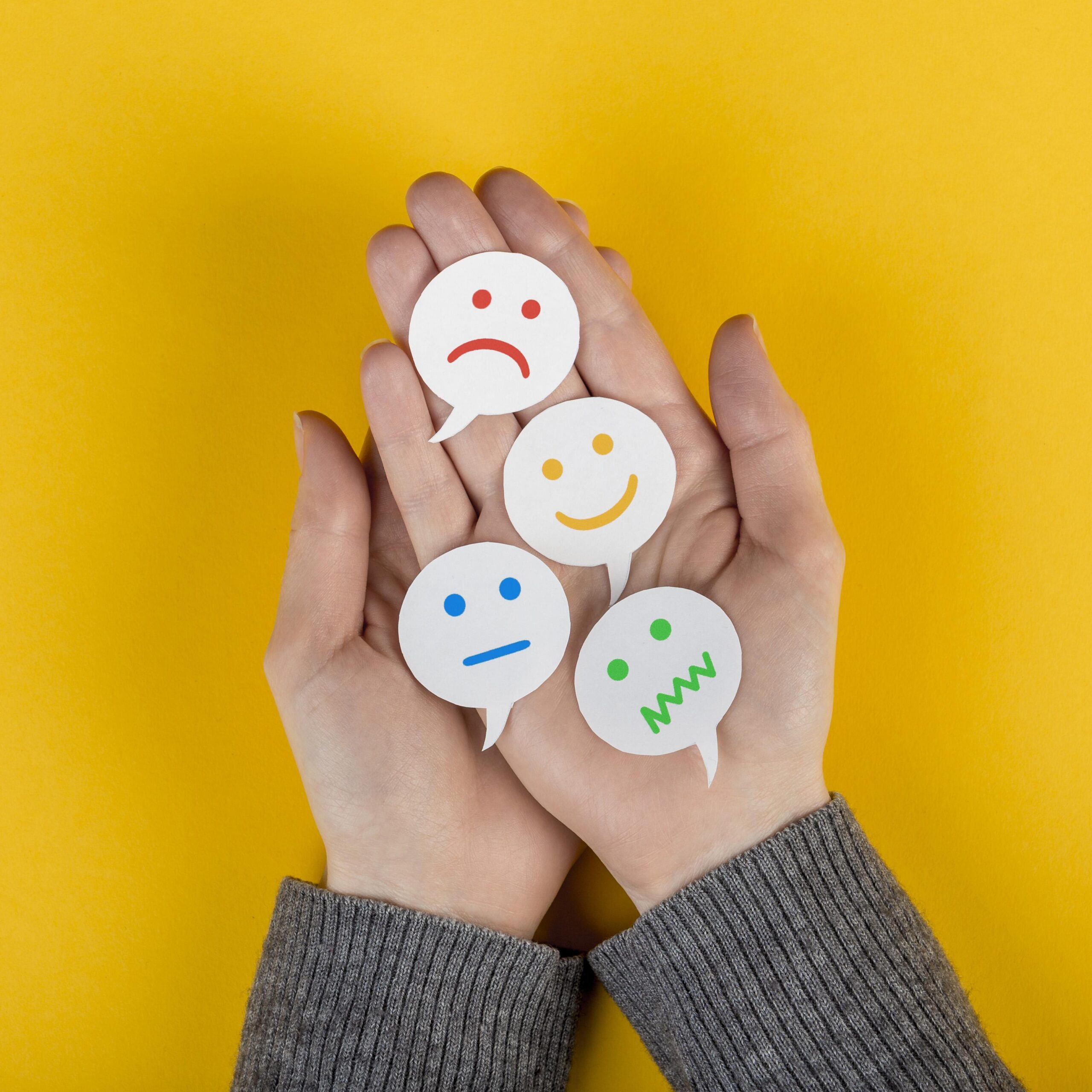In the quest for success and happiness, two types of intelligence are often spoken of emotional intelligence (EQ) and traditional intelligence (IQ). While IQ measures one’s cognitive abilities in terms of reasoning and problem-solving, EQ is the ability to understand and manage one’s emotions, as well as others. Although both IQ and EQ have their contributions toward well-being, many researchers argue that emotional intelligence plays a greater role in gaining life satisfaction and meaningful relationships. Let’s see how these two types of intelligence compare and why EQ could be the secret to lifelong happiness.
Understanding IQ: The Traditional Measure of Intelligence:
IQ, which stands for Intelligence Quotient, has been a test of cognitive ability for several decades. It measures the logic, math, and language skills one has. Individuals having high IQ scores are found to be intellectually gifted; such people are found capable of getting opportunities at an academic as well as a professional level. IQ proves to be relatively stable throughout life and is strongly impacted by both genetic and environmental factors. Such people are capable of doing complex jobs and solving problems very easily.
Key Benefits of IQ:
Problem-Solving:
IQ builds analytical work, logical thinking, and complex problem-solving.
Academic and Career Success:
High IQ is accompanied by performance in academics and, generally, career success in professional fields that demand technical information.
Memory and Processing Speed:
IQ tests measure cognitive processing skills, which help in the retention of information and decision-making processes.
Major Areas of EQ’s:
- Self-awareness: Recognizing and understanding your emotions and how they influence your thoughts and behaviors.
- Self-regulation: Managing emotions healthily, including adapting to change and handling challenges.
- Social skills: Building and maintaining relationships, understanding social cues, and collaborating effectively.
- Empathy: Understanding and sharing the feelings of others, which fosters connection and trust.
EQ vs. IQ: How Each Leads to Success and Well-being
1. Career Development and Leadership:
IQ contributes to career success in jobs involving analytical skills and logical thinking for problem-solving. Typically, it is related to roles in STEM fields, academics, and research.
However, EQ is completely required in jobs that require leadership and interpersonal skills. Higher EQ managers and leaders would inspire and motivate their teams toward a better work culture as well as handle conflicts positively. Studies indicate that a person’s EQ is far more significant than IQ when predicting success in leadership since leaders have to connect, empathize, and work with emotional cues.
2. Personal Relationships:
It’s more about EQ and less about IQ in having a healthy relationship. Cognitive intelligence can facilitate the presentation of complex ideas in communications. However, it doesn’t have much to say about emotional understanding.
Equating to developing and sustaining an effective relationship, there are high dependencies on one’s EQ. People having the sense of high EQ will have the best identification of emotions about themselves as well as people around them because that helps develop trust and intimacy to connect with other individuals towards meaningful relationships.
3. Self-medication for mental illnesses and stress:
IQ is helpful for rational thinking and logical reasoning in problem-solving, and that is how it would help a person to cope during stressful times when one must think on their feet. High IQ, however, does not guarantee resilience toward stress or emotional challenges.
In contrast, EQ directly impacts mental health. Individuals with a higher EQ handle stress better, take care of themselves and seek support when needed. They are generally more positive and therefore more resilient to life’s ups and downs by implementing positive coping strategies.
Research Supporting the Role of EQ in Life Satisfaction:
The following studies have proven that EQ is a better predictor of life satisfaction than IQ. A study conducted by the University of California indicated that those with high EQ levels were more satisfied with their job, had stronger interpersonal relationships, and had better mental well-being. Another study in Emotion concluded that a person with high emotional intelligence has a better life outcome because it helps them deal with the challenges of life much better.
Furthermore, researchers discovered that the person having a higher EQ was in a better position to detect one’s strengths and weaknesses; this gives a boost to their self-image positively, which leads to the development of self-esteem. Individuals relying on IQ alone suffer from the lack of the ability to handle their emotions, which further results in a lot of stress and discontentment.
Why EQ May Matter More for Long-Term Happiness:
While IQ might add more to successful problem-solving and academic excellence, EQ contributes more substantially to establishing closer relations, stress management, and emotional security—all attributes of a lifetime filled with long-term happiness. Emotional intelligence enables one to find purpose, establish resilience, and maintain healthy relationships in a meaningful manner; it’s all integral aspects of a satisfactory life. Now that interpersonal skills and flexibility are valued, EQ might outdo IQ as the better predictor of life satisfaction in the present-day world.
Conclusion
IQ leads to cognitive advantages, whereby a person can think critically and technically, which in many cases leads to academic success and career advancement.
EQ allows for self-awareness, emotional regulation, empathy, and social skills. These are essential for happiness and interpersonal success.
Though both IQ and EQ bring satisfaction to life, the latter is more crucial to the development of relationships, resilience, and emotional wellness.
Ultimately, IQ and EQ complement each other. A balanced life is ensured where cognitive skills support professional growth and EQ enriches personal relationships as well as mental health, but what really defines a fulfilling life might be connecting, empathizing, and managing emotions.




